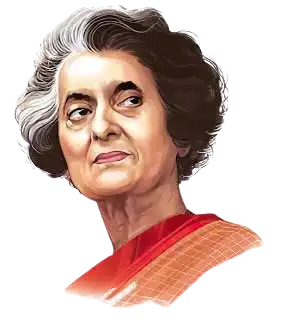1. Early Life and Political Inception
Born into a family deeply involved in the fight for India's independence, Indira Gandhi's early life was steeped in political activity. She studied at prestigious institutions in India and abroad but was drawn into the political arena, influenced by her father and Mahatma Gandhi. Her marriage to Feroze Gandhi, a key figure in the Indian National Congress, further cemented her place in Indian politics.
2. Rise to Power
Indira Gandhi's ascent in the Indian National Congress was marked by her strategic acumen and the ability to navigate the complex landscape of Indian politics. After serving as her father's personal assistant and later as the Minister of Information and Broadcasting, she succeeded Lal Bahadur Shastri as Prime Minister in 1966, amidst significant challenges.
3. Key Policies and Achievements
One of Indira Gandhi's most lauded initiatives was the promotion of the Green Revolution in the late 1960s, which transformed India's agricultural landscape, making the country self-sufficient in food grains and dramatically increasing agricultural productivity.
Gandhi's tenure saw the nationalization of banks and the insurance sector, aimed at distributing wealth more evenly and securing resources for development. This move significantly expanded the government's role in the economy and remains a subject of debate.
Her foreign policy was characterized by a shift towards non-alignment and an emphasis on India's sovereignty. The Indo-Soviet Treaty of Peace, Friendship, and Cooperation in 1971 and India's victory in the 1971 war with Pakistan, leading to the creation of Bangladesh, were significant milestones.
4. Challenges and Controversies
Perhaps the most controversial period of her leadership was the Emergency, declared in 1975. Citing threats to national security, Gandhi suspended constitutional rights, curbed the press, and arrested political opponents, actions that sparked widespread criticism and debate about democratic governance in India.
The storming of the Harmandir Sahib (Golden Temple) in Amritsar to counter the Sikh separatist movement was another contentious chapter in her premiership, leading to her assassination by her own Sikh bodyguards in 1984.
5. Legacy and Impact
Indira Gandhi's legacy is complex and multifaceted. While her leadership style and policies significantly impacted India's path to modernization and her role in strengthening India's sovereignty and democratic institutions, her tenure also raised questions about authoritarianism and the centralization of power.
6. FAQs
Indira Gandhi's major contributions include the Green Revolution, the nationalization of banks and insurance, and significant strides in India's nuclear program.
The Emergency was declared citing internal unrest and the threat of destabilization, allowing Gandhi to rule by decree and suspend elections, which was widely criticized as an attempt to maintain power amid legal challenges and political opposition.
Gandhi's foreign policy strengthened India's position on the global stage, particularly through the Indo-Soviet friendship treaty and a decisive victory in the 1971 war, which led to the creation of Bangladesh.
7. Online Resources
- National Archives of India: Provides access to documents and speeches from Indira Gandhi's tenure.
- Indira Gandhi Memorial Museum: Offers insights into her life, leadership, and legacy.
- Scholarly Articles and Biographies: Platforms like JSTOR and academic libraries host extensive research on her policies, leadership style, and impact on India.
8. Conclusion
Indira Gandhi's life and political career were characterized by her determination to see India emerge as a strong and self-reliant nation. Her leadership, marked by significant achievements and controversies, continues to evoke debate and analysis. As we reflect on her contributions and challenges, Indira Gandhi remains a towering figure in Indian and global politics, her legacy a subject of admiration and critique alike.

